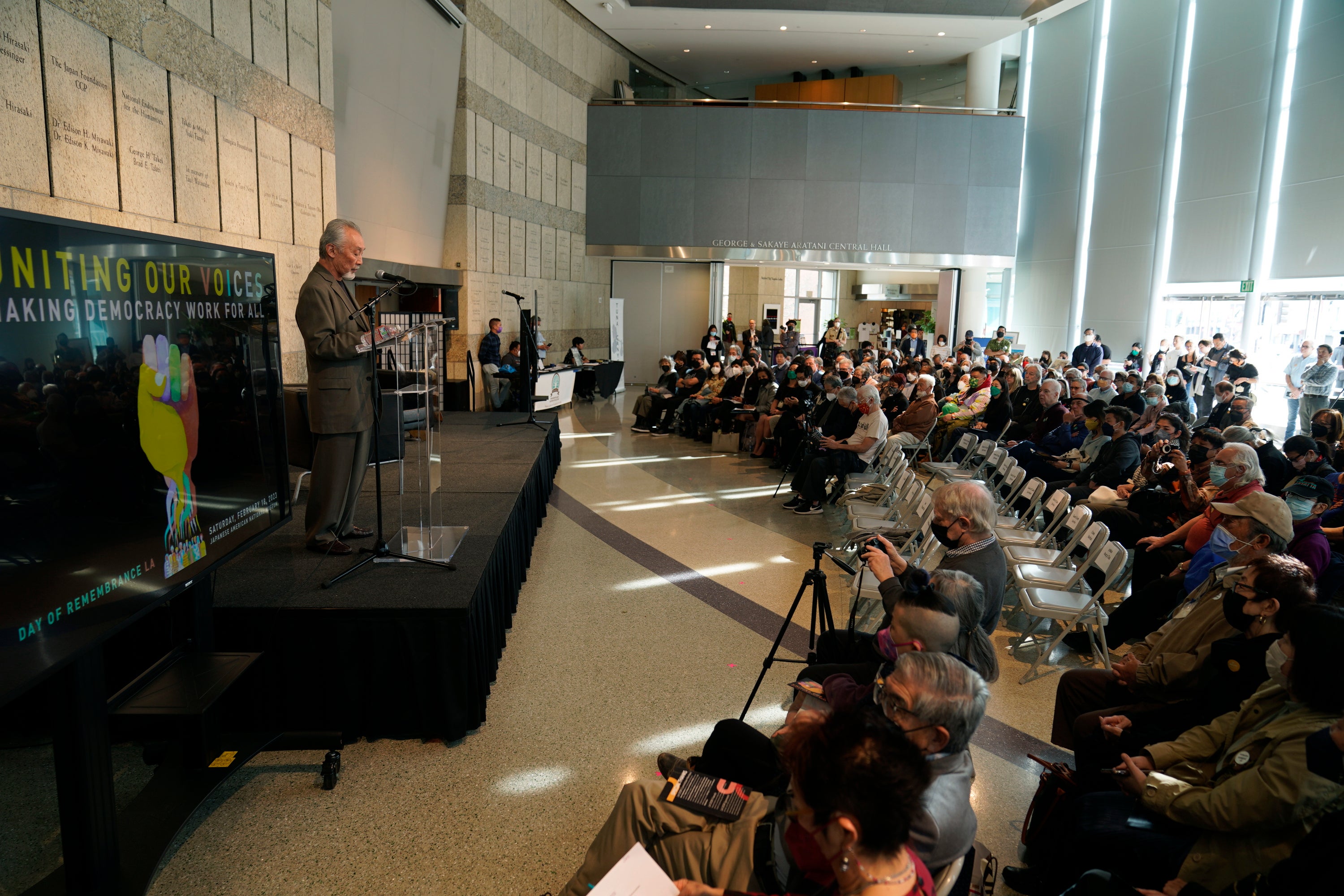Ancestry website to catalogue names of Japanese Americans incarcerated during World War II
The names of thousands of people held in Japanese American incarceration camps during World War II will be digitized and made available for free on Ancestry

Your support helps us to tell the story
From reproductive rights to climate change to Big Tech, The Independent is on the ground when the story is developing. Whether it's investigating the financials of Elon Musk's pro-Trump PAC or producing our latest documentary, 'The A Word', which shines a light on the American women fighting for reproductive rights, we know how important it is to parse out the facts from the messaging.
At such a critical moment in US history, we need reporters on the ground. Your donation allows us to keep sending journalists to speak to both sides of the story.
The Independent is trusted by Americans across the entire political spectrum. And unlike many other quality news outlets, we choose not to lock Americans out of our reporting and analysis with paywalls. We believe quality journalism should be available to everyone, paid for by those who can afford it.
Your support makes all the difference.The names of thousands of people held in Japanese American incarceration camps during World War II will be digitized and made available for free, genealogy company Ancestry announced Wednesday.
The website, known as one of the largest global online resources of family history, is collaborating with the Irei Project, which has been working to memorialize more than 125,000 detainees. It's an ideal partnership as the project's researchers were already utilizing Ancestry. Some of the site's collections include nearly 350,000 records.
People will be able to look at more than just names and tell “a bigger story of a person,” said Duncan Ryūken Williams, the Irei Project director.
"Being able to research and contextualize a person who has a longer view of family history and community history, and ultimately, American history, that's what it's about — this collaboration,” Williams told told The Associated Press exclusively.
In response to the 1941 attack by Japan on Pearl Harbor, President Franklin D. Roosevelt signed Executive Order 9066 on Feb. 19, 1942, to allow for the incarceration of people of Japanese ancestry. The thousands of citizens — two-thirds of whom were Americans — were unjustly forced to leave their homes and relocate to camps with barracks and barbed wire. Some detainees went on to enlist in the U.S. military.
Through Ancestry, people will be able to tap into scanned documents from that era such as military draft cards, photographs from WWII and 1940s and ’50s Census records. Most of them will be accessible outside of a paywall.
Williams, a religion professor at the University of Southern California and a Buddhist priest, says Ancestry will have names that have been assiduously spell-checked. Irei Project researchers went to great efforts to verify names that were mangled on government camp rosters and other documents.
“So, our project, we say it's a project of remembrance as well as a project of repair,” Williams said. “We try to correct the historical record.”
The Irei Project debuted a massive book at the Japanese American National Museum in Los Angeles that contains a list of verified names the week of Feb. 19, which is a Day of Remembrance for the Japanese American Community. The book, called the Ireichō, will be on display until Dec. 1. The project also launched its own website with the names as well as light installations at old camp sites and the museum.